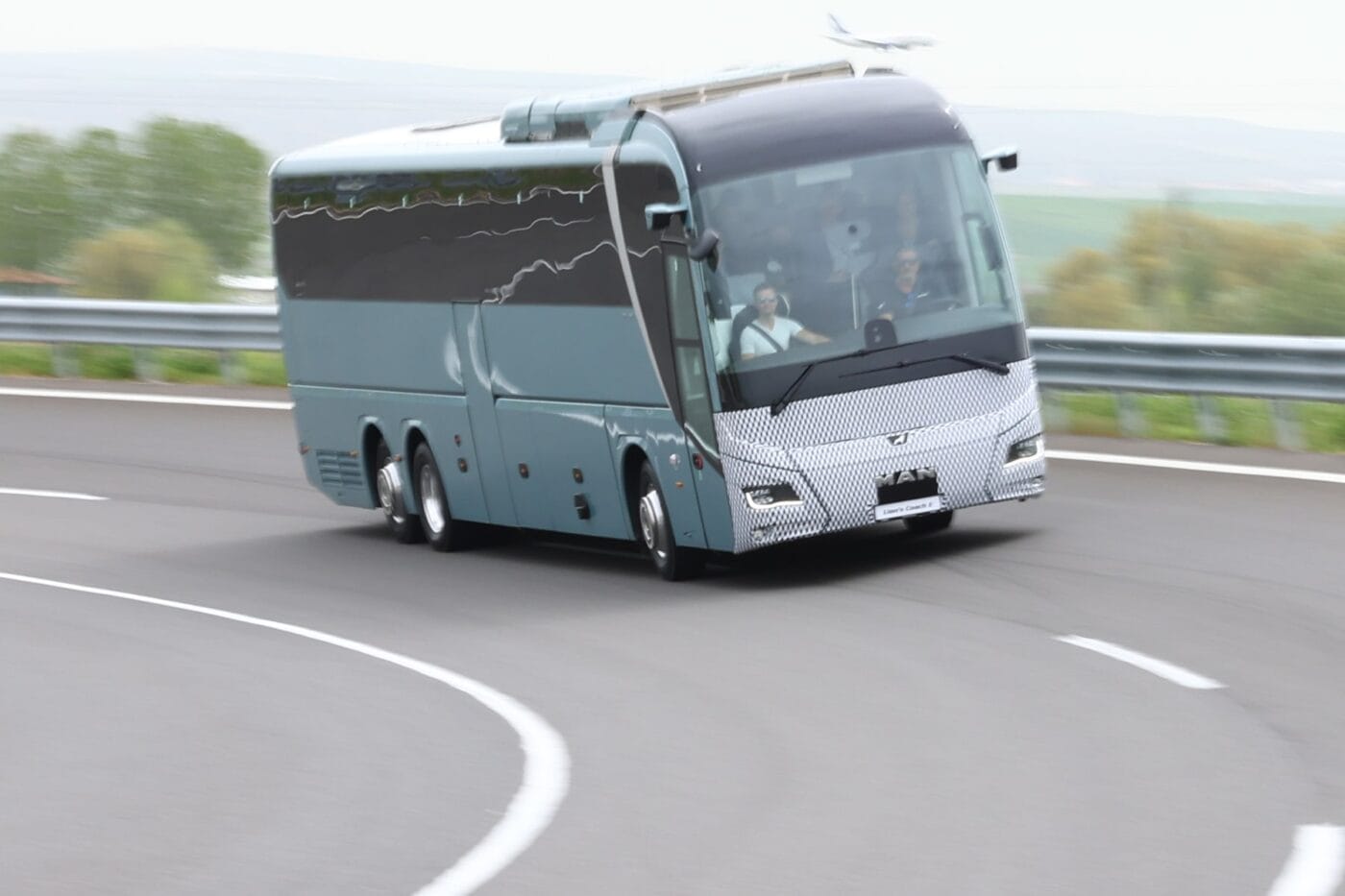
MAN moves into pole position on electric coaches
The Lion’s Coach 14 E will hit the road as a 13.9m-long three-axle vehicle with a maximum permissible total weight of 27 tonnes. That will make it a rather exotic vehicle in Europe, given the rarity of electric intercity buses and coaches. MAN itself is delighted to be “the first major European manufacturer to launch a fully electric coach” , but the key word here is ‘European’. That’s simply because BEV coaches from non-European suppliers such as Yutong and BYD can already be found in this part of the world.
There are several reasons why this market is still in its early days of development. The most important is that long-distance coaches – unlike city buses, which are already widely electrified – are not just about TCO, as they do not travel on predictable routes and draw their power for the next day from their own charging station at the same depot every night. Instead, coaches need to be flexible and require a correspondingly fast charging station at a wide variety of locations. Their use case is more similar to that of long-distance electric lorries, which are only just reaching market maturity.
Regardless, MAN is now pushing ahead and wants to launch its electric coach in 2026. It won’t be equipped with a modified tech package from the MAN city bus, but with drive technology featured in the MAN eTruck. The Lion’s Coach 14 E is therefore more closely related to the company’s own electric truck than to the forthcoming Lion’s City E, as it will also use the same 89 kWh battery packs as the truck. These can be charged via CCS with up to 375kW DC and are assembled by MAN in Nuremburg. In future, Megawatt Charging Systems (MCS) should also be able to deliver up to 750 kW. It is interesting to note that MAN uses NMC batteries in its commercial vehicles and not batteries with LFP chemistry like many of its competitors.
Range of up to 650 kilometres
In principle, the coach can accommodate four to six of the NMC battery packs mentioned, which corresponds to a gross energy content of 356 to 534 kWh. The Lion’s Coach therefore also has the maximum configuration of 534 kWh (480 kWh usable) in common with the eTruck. However, this means that the coach can travel significantly further than the truck. MAN puts the range at up to 650 kilometres. The streamlined design (‘Smart Flow Design’), which lowers the drag coefficient to 0.31 and thus “brings it to a value in the range of compact SUVs”, is likely to play a part in this, according to the original quote from the Munich headquarters. Of course, the model will have to be measured against such claims after its launch in 2026.
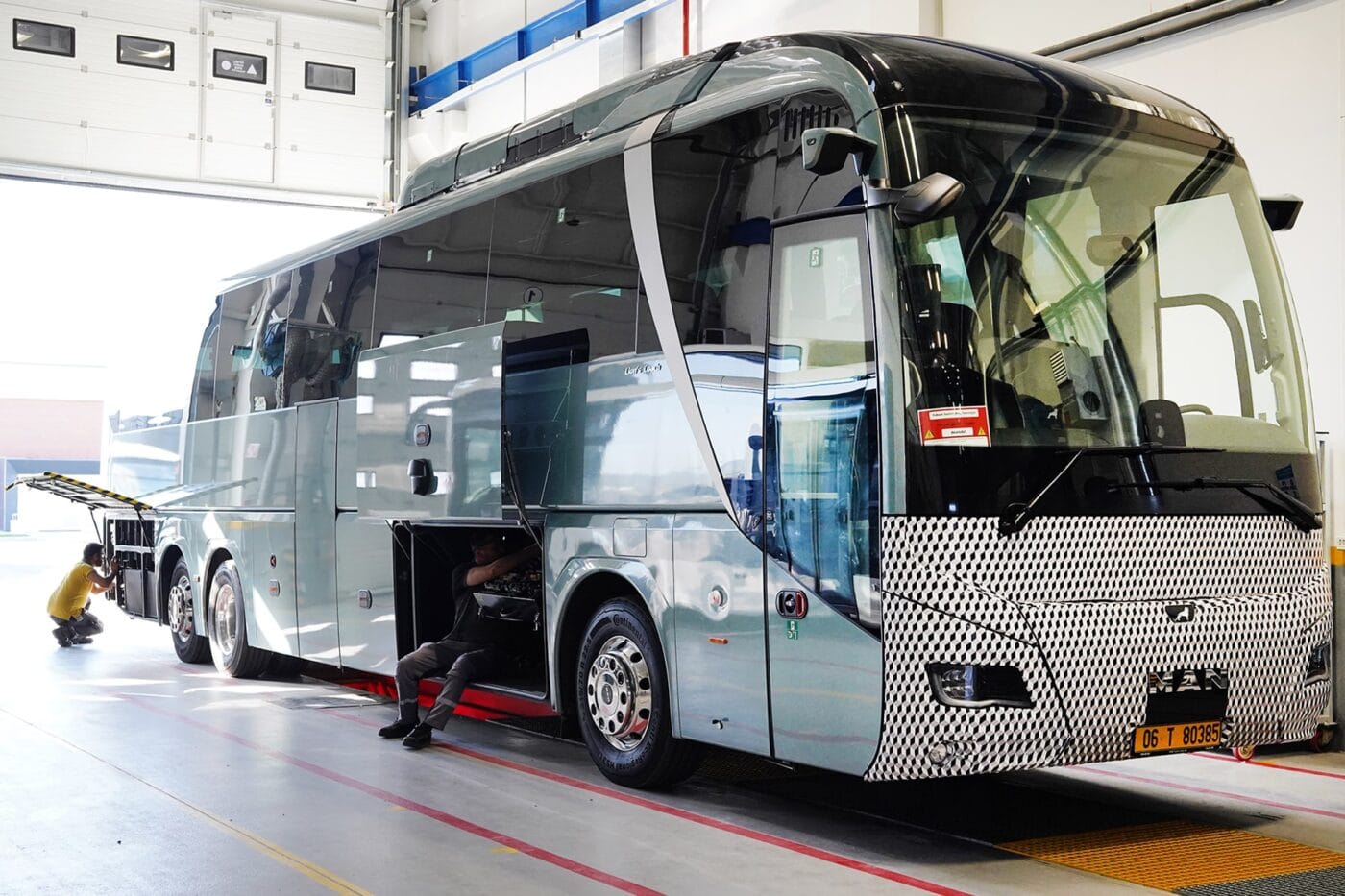
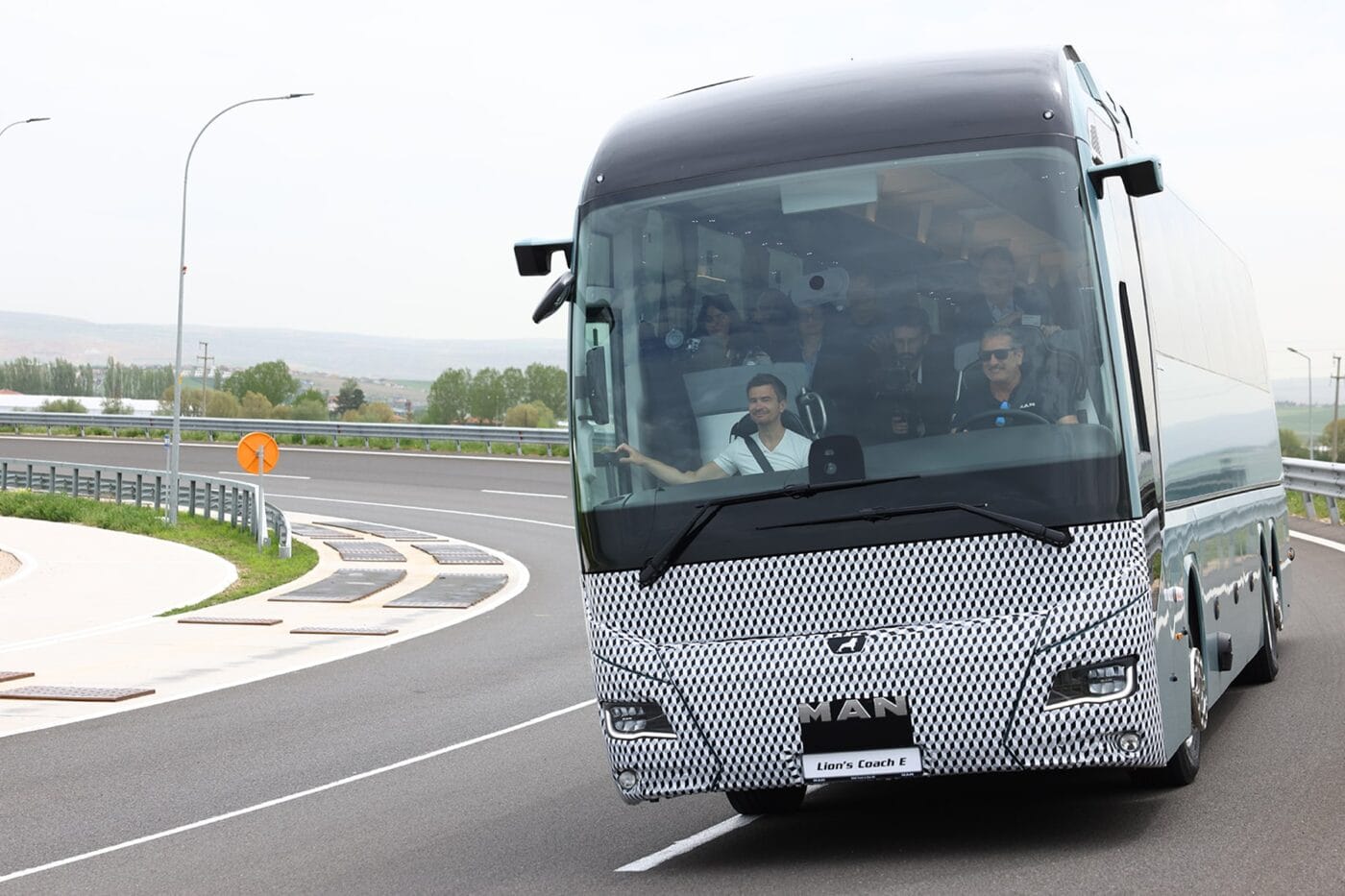
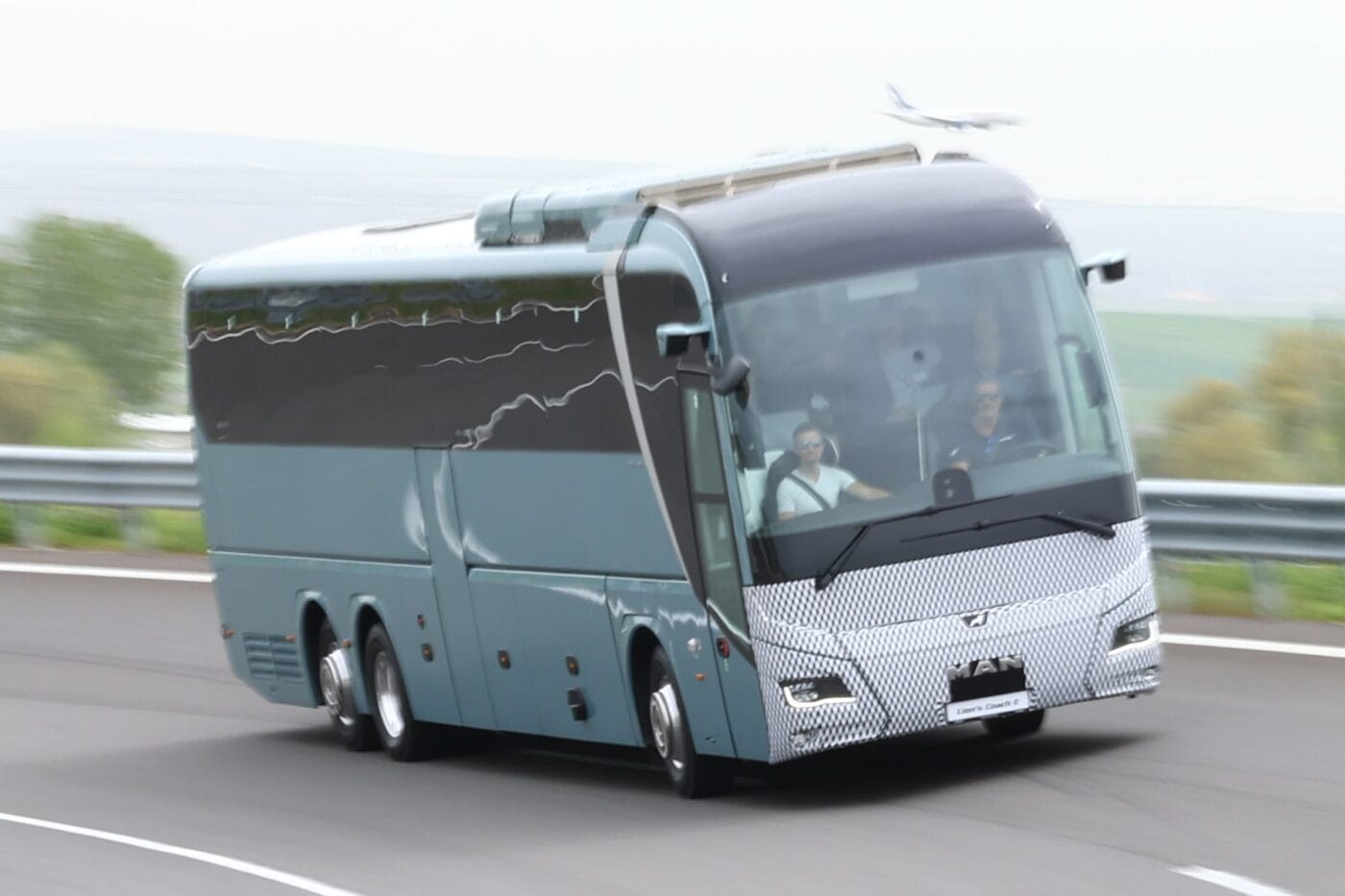
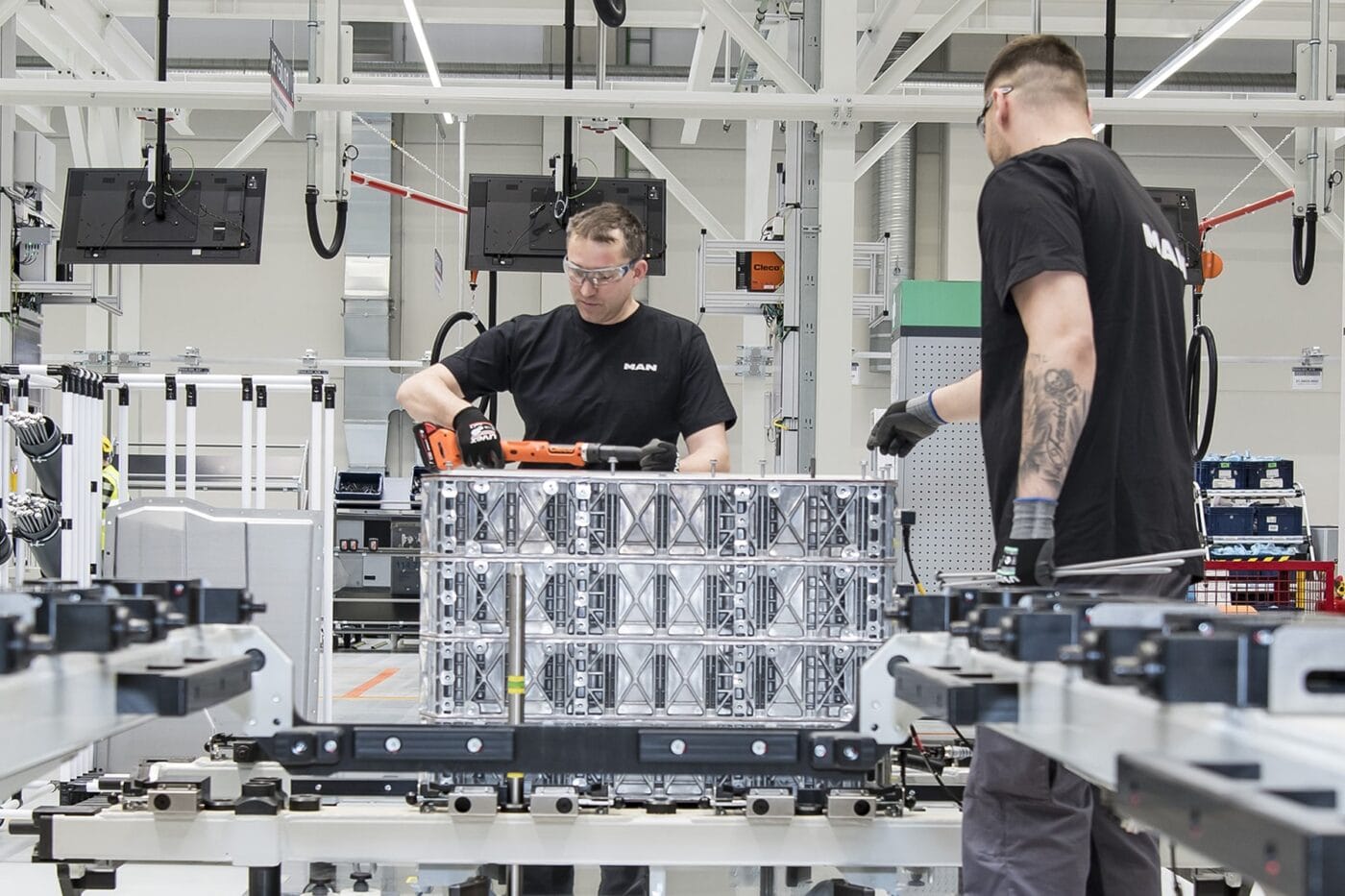
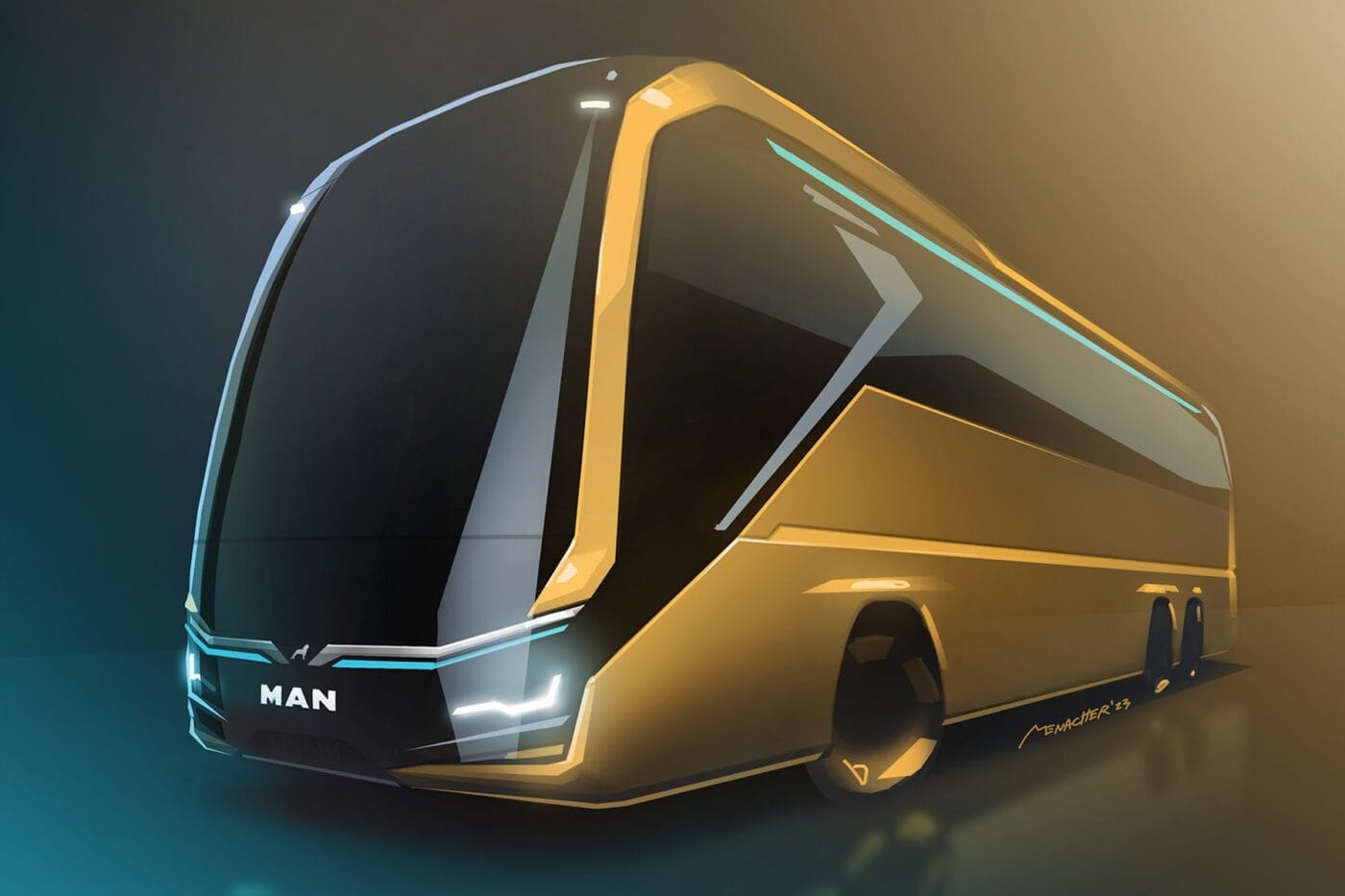
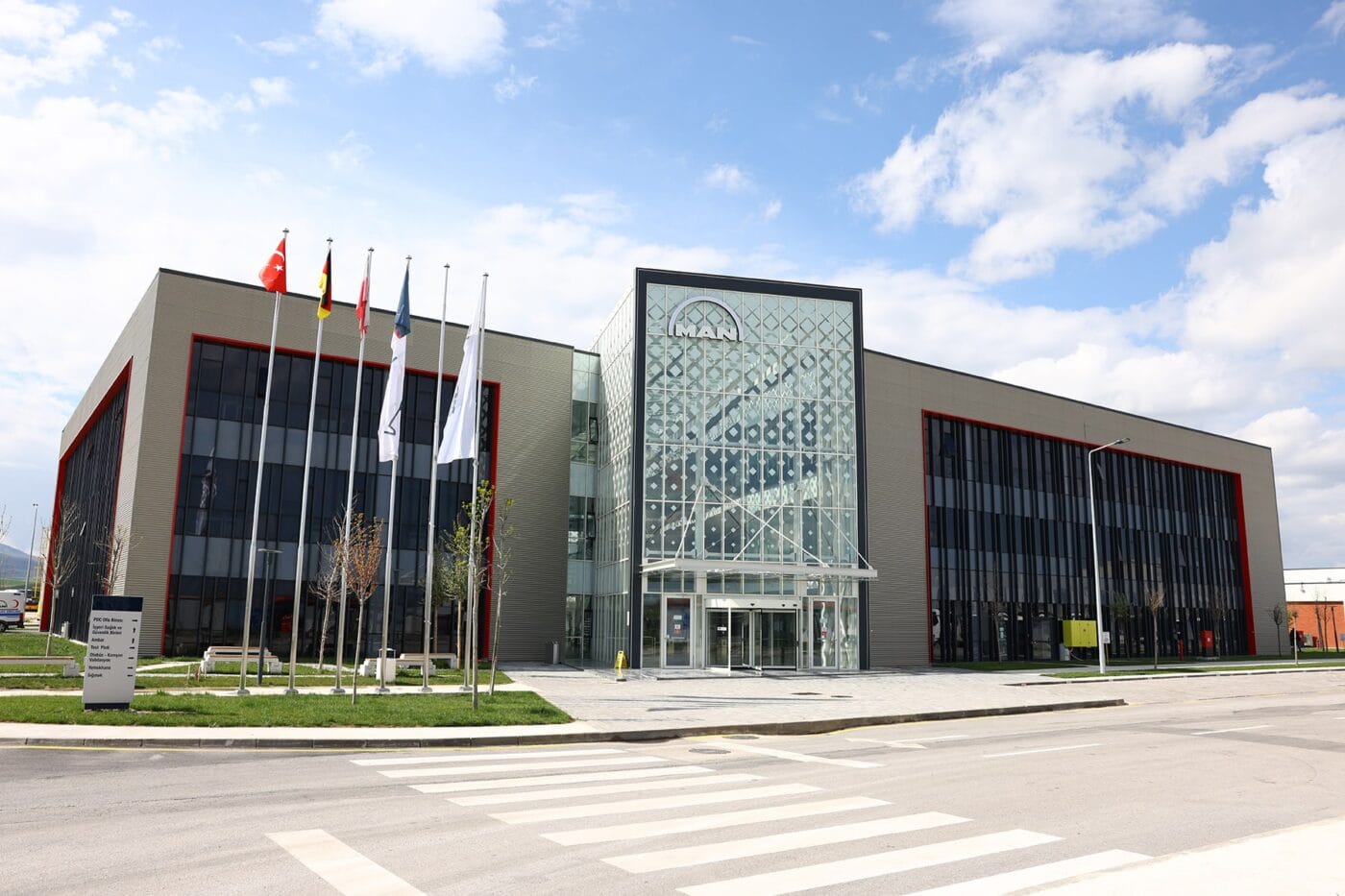
The future electric coach will also inherit its engine from the electric-powered MAN truck, a further indication of the Traton subsidiary’s pronounced common parts strategy. It is MAN’s eCD330 synchronous motor with an output of 330 kW. The packaging of the drive and battery components should be so compact that the space available remains generous. MAN promises seats for up to 61 passengers and “no restrictions in terms of luggage volume compared to the diesel equivalent” (minimum 11 to maximum 13 cubic metres).
It’s important to note that, apart from the electric components from the eTruck, MAN’s Lion’s Coach diesel coach, which was presented in 2017, forms the framework of the new XXL Stromer. The combustion-powered model with three axles uses a diesel engine with up to 382 kW and also offers space for up to 61 passengers. The diesel-powered coach is available in various configurations from 12.1 to 13.9 metres in length with two or three axles. The shortest version can accommodate a maximum of 53 passengers and 11.7 cubic metres of luggage, while the three-axle MAN Lion’s Coach L offers 61 seats. It is still unclear whether this selection will also be available in the BEV version in the future, but it is likely, as MAN has promised to ‘roll out further models in the coach segment’ by the end of the decade after the three-axle electric coach.
Focus initially ‘on short and medium-haul routes’
The Munich-based company makes no secret of the fact that MAN’s first electric coach is the beginning rather than the end of a new development. With reference to the state of development and the public charging infrastructure, the manufacturer sees the preferred areas of application for the Lion’s Coach 14 E as ‘short and medium distances’ in the first stage, including shuttle services, works transport and city trips.
Heinz Kiess, Head of Bus Product Marketing, nevertheless sees good opportunities for coach tourism to tap into new target groups with a high level of sustainability awareness with the electric coach. “In particular, because with a CCS charging capacity of up to 375 kW in conjunction with the driver’s statutory driving and rest periods, a similar usage profile to a diesel bus is already possible today.” However, such powerful charging points must also be available. With the megawatt charging infrastructure already under development, the areas of use for electric buses are set to expand even further towards long-distance travel in the future. Thanks to a peak charging capacity of 750 kW, it will only take around 45 minutes in future for the discharged battery packs to be largely full again.
Series production planned for 2026
The company dates the start of series production to 2026 at the Turkish MAN plant in Ankara, which has been successively reorganised for this purpose in recent months. “The realignment at the site in Ankara is an important part of MAN’s transformation into a provider of sustainable transport solutions,” emphasises Barbaros Oktay, Head of Bus at MAN Truck & Bus. To coincide with the start of series production of the electric coach, Oktay also announced an ‘early fleet’, which will go to selected customers in the European core markets next year. Here, we find another parallel with the eTruck, with MAN currently taking a similar approach with that vehicle’s introduction.
One early adopter of the electric coach has already been established for some time: FC Bayern, which is set to use one as a team bus in the 2025/26 season. The background to the close relationship between the two sides is a sponsorship partnership that has existed since 2008 and which MAN extended until 2027 last summer. Both sides are also planning a commercial vehicle charging park at the Allianz Arena, which will be available for use on ‘non-match days’ in future. The team’s electric coach can then also charge there, which incidentally is not primarily intended for away games, but “will probably drive FC Bayern’s professionals to the Allianz Arena for at least the home games from 2026 onwards”, the football club said in an earlier press release.
Meanwhile, MAN emphasises that it will soon be one of the first players in the industry to electrify all three bus segments with its electric coach: city buses, intercity buses and coaches. Oktay has stated: “Our electric coach marks the beginning of a new era of emission-free and low-noise travel that many customers have been waiting for.”

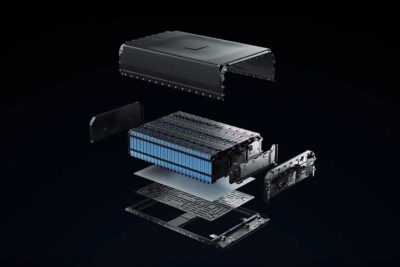

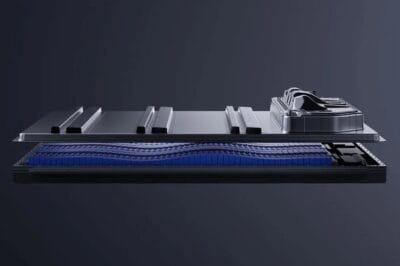
0 Comments